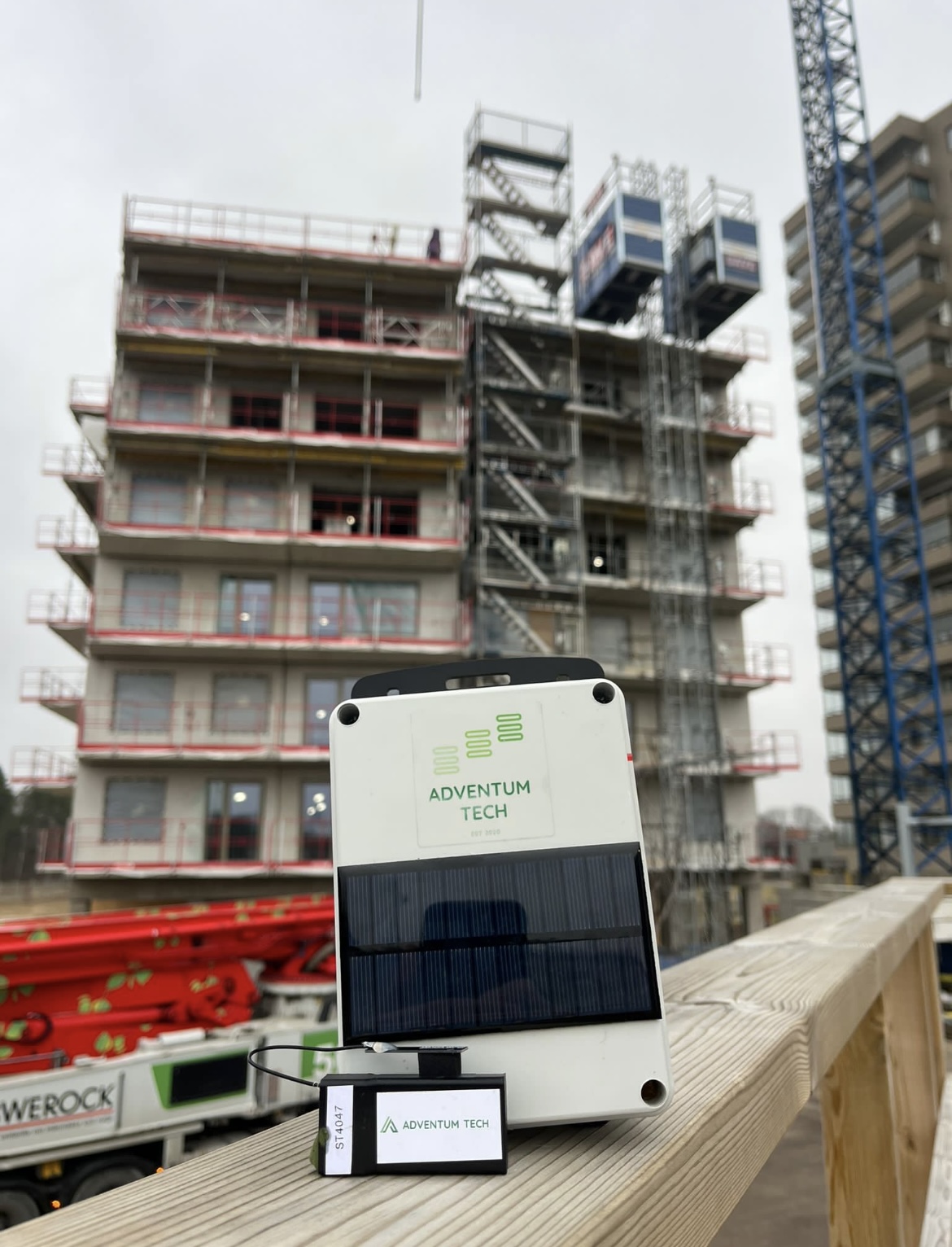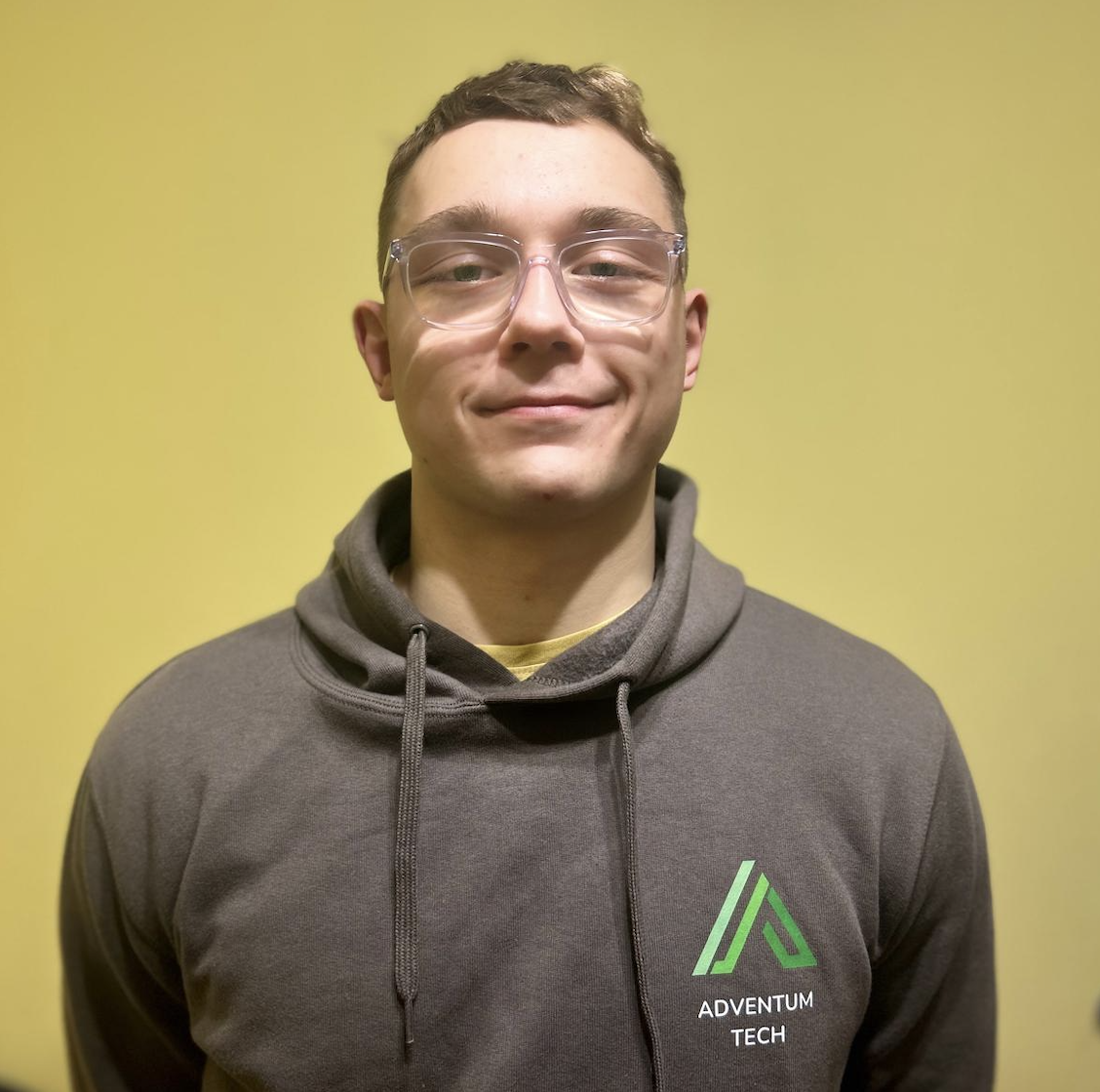Adrians Danoss and Ronalds Plostnieks are two of the core team members at Adventum Tech, a Latvian deep tech startup building wireless sensor systems for the construction industry. Their journey into entrepreneurship has been fast, hands-on, and full of learning curves.
How It Started
Adrians, now Head of Sales at Adventum Tech, has a background in venture building. “Before this, I was involved in a 3D printing business,” he says. “That’s where I really learned what it takes to sell a tangible product - and how to troubleshoot when something goes wrong.”
He has also taken part in a robotics program by RTU, where his technical knowledge grew. Through various courses and pitching competitions, he continued shaping his entrepreneurial skill set. When he heard about Adventum Tech's mission of making construction sites smarter with real-time monitoring, it clicked.
He has also taken part in a robotics program by RTU, where his technical knowledge grew. Through various courses and pitching competitions, he continued shaping his entrepreneurial skill set. When he heard about Adventum Tech's mission of making construction sites smarter with real-time monitoring, it clicked.
"It was about turning invisible risks into usable data. That's something I wanted to be a part of."
Ronalds, Head of Product Development at Adventum, came on board through a more informal route. “I met our CEO Nikita Gorbatko at a training,” he recalls. “He mentioned a new project, and a week later I was working on it.” With a background in robotics program by RTU and hands-on experience in hardware assembly and programming, Ronalds was well equipped.
“I had been working with sound systems in Ghetto Games before, so this felt like the next step. I wanted to build something real.”
.

What They Do
Adventum Tech designs wireless sensors for real-time construction monitoring - measuring everything from how concrete solidifies to how nearby vibrations affect existing structures.
Every project has its own challenges, so we customize our setup to match real conditions on the ground. "We're not following templates," Adrians adds. "We're creating the future of how industries monitor and optimize their operations, one partnership at a time."
Their sensors can be embedded directly into structures or installed afterward, depending on the use case. “If a new building is going up next to an existing one,” Adrians explains, “our sensors can show whether external factors are affecting it, and how.”

UniLab as a Turning Point
The team joined UniLab in September 2024, completing the acceleration program by February 2025. “It was our CEO Nikita who recommended UniLab,” says Ronalds.
“For me, it was about filling the gaps - how to scale a hardware startup, how to move in a heavily regulated industry like construction.”
Adrians agrees. “The program gave us structure and people to learn from. Our mentors, like Ansis Spridzāns in legal and Kaspars Rožkalns from the construction sector, made a real impact.”
Through Kaspars, the team landed their first pilot project for their slab control sensors. “That project helped us prove our tech works,” Adrians says. “And it gave us a solid case study for future clients.”
Ronalds adds: “The mentors didn’t just talk theory. They helped us understand our product-market fit - and that shaped how we’ve approached every project since.”
k.
Challenges and Lessons from the Field
One of the biggest challenges, according to Adrians, has been overcoming industry skepticism. “Construction is slow to change, and no one wants to be the first to test a sensor. We had to show real ROI right away - like proving our concrete curing sensors could save three days per floor. Without data, no one’s listening.”
Ronalds points out the difficulty of balancing innovation with usability.
“We want the tech to be advanced, but it has to be simple enough for every site worker to use it in just a few steps.”
Ronalds also adds that is not only about the tech, but trust too: “You don’t get second chances on-site. If a sensor doesn’t work perfectly the first time, they’ll never use it again.”

What They’ve Learned
Adrians has learned the value of iteration. “You can’t fall in love with your first idea. I recently saw this post on social media - someone built 2,359 prototypes before landing on the final product."
"You have to fall in love with the problem, not your prototype. Otherwise, you risk getting stuck on something that only works in theory.”
Ronalds’ biggest takeaways are patience and teamwork. “In deep tech, things take time. And even the best tech won’t go anywhere without a team that works well together.”
On Quitting and Why They Didn’t
For Ronalds, the launch of their first pilot project stands out. “We were nervous - double, even triple-checking everything. It was the first time the sensors were out in the field. But it worked. That gave us confidence.”
Asked if they’ve ever wanted to quit, Adrians admits: “Of course. There are days when nothing works. But those are the moments that shape you. You push through, and a week, month or year later you realize those setbacks were necessary.”
Ronalds agrees. “You just have to keep moving. That’s how you build trust - with others, and with yourself.”
k.

What Matters Most
When asked what personal values have made it into their work, Ronalds answers quickly: “Simplicity and reliability."
"In construction, people depend on systems to just work. That’s what we want our sensors to do- function simply, reliably, even in tough environments.”
.

Advice for Other Founders
Adrians: “Don’t get caught up in fairy tale thinking, but don’t stop pushing either. It’s all about balance.”
Ronalds shares: “Don’t wait until it’s perfect. Put it out there. Test it. Even rough versions will teach you more than endless building behind closed doors.”
